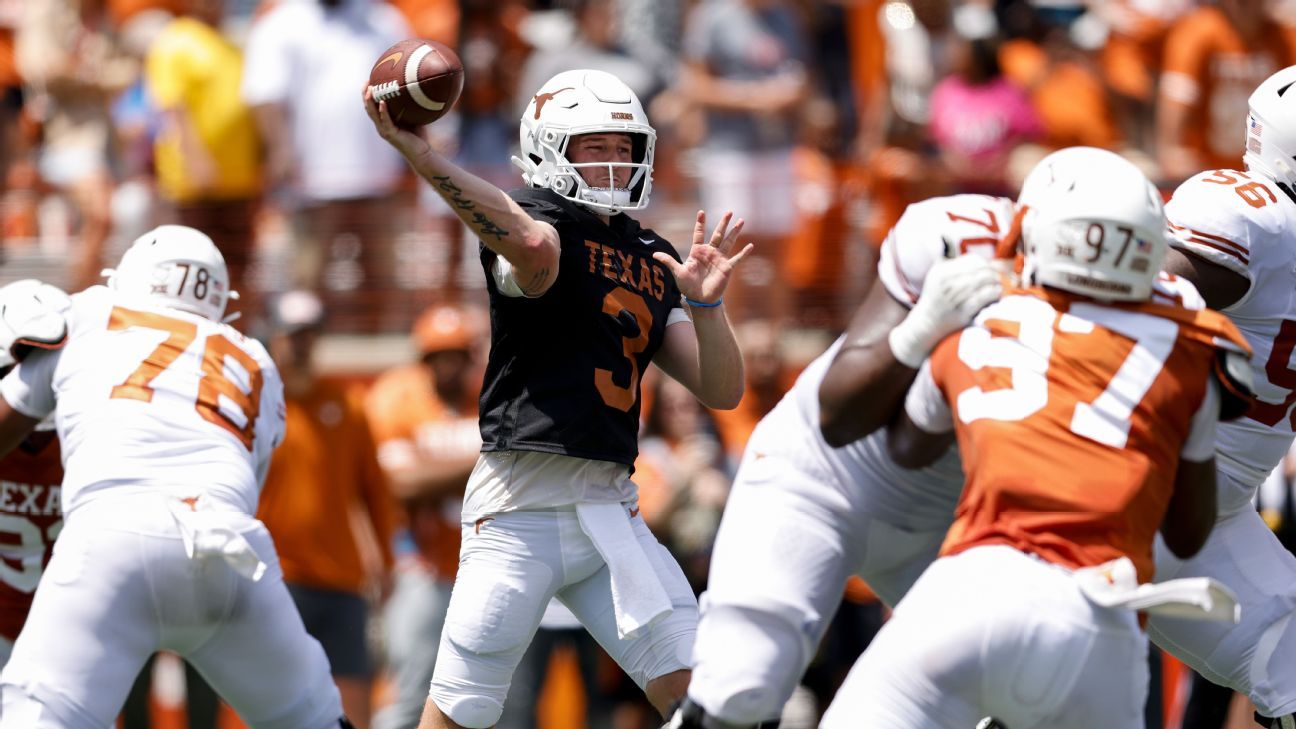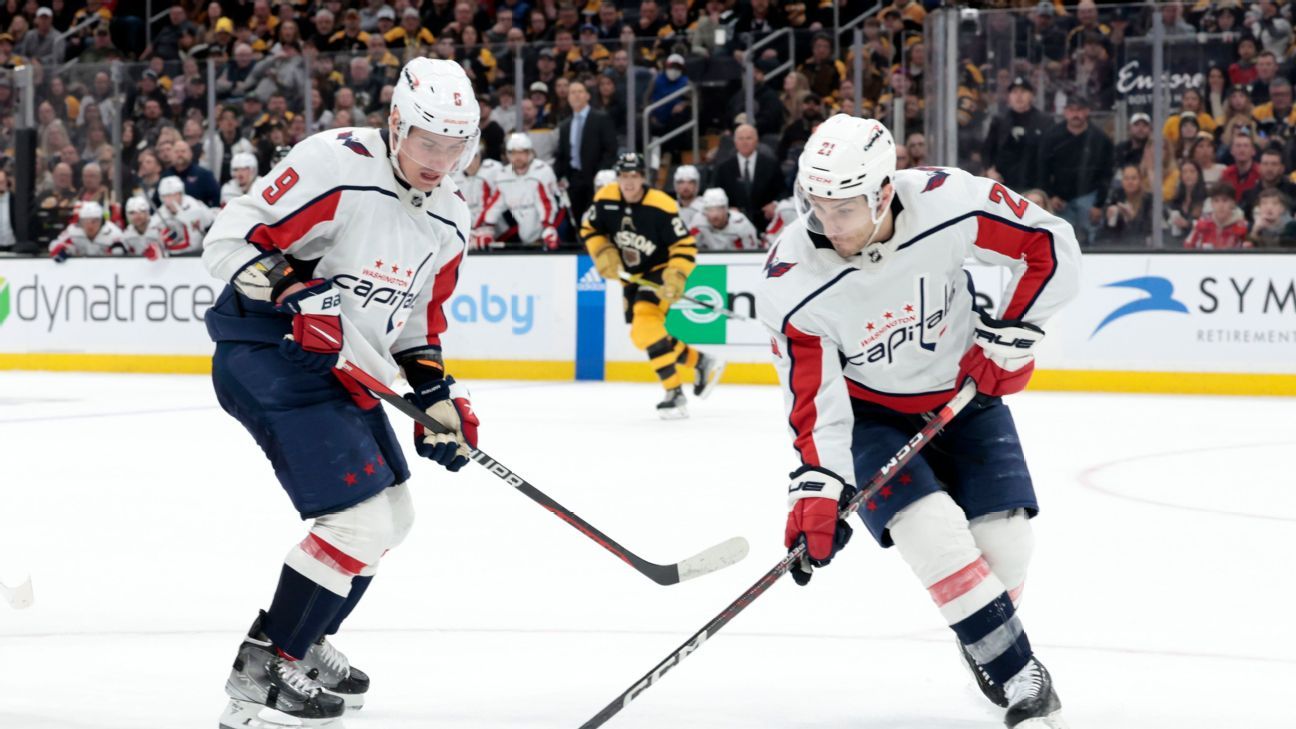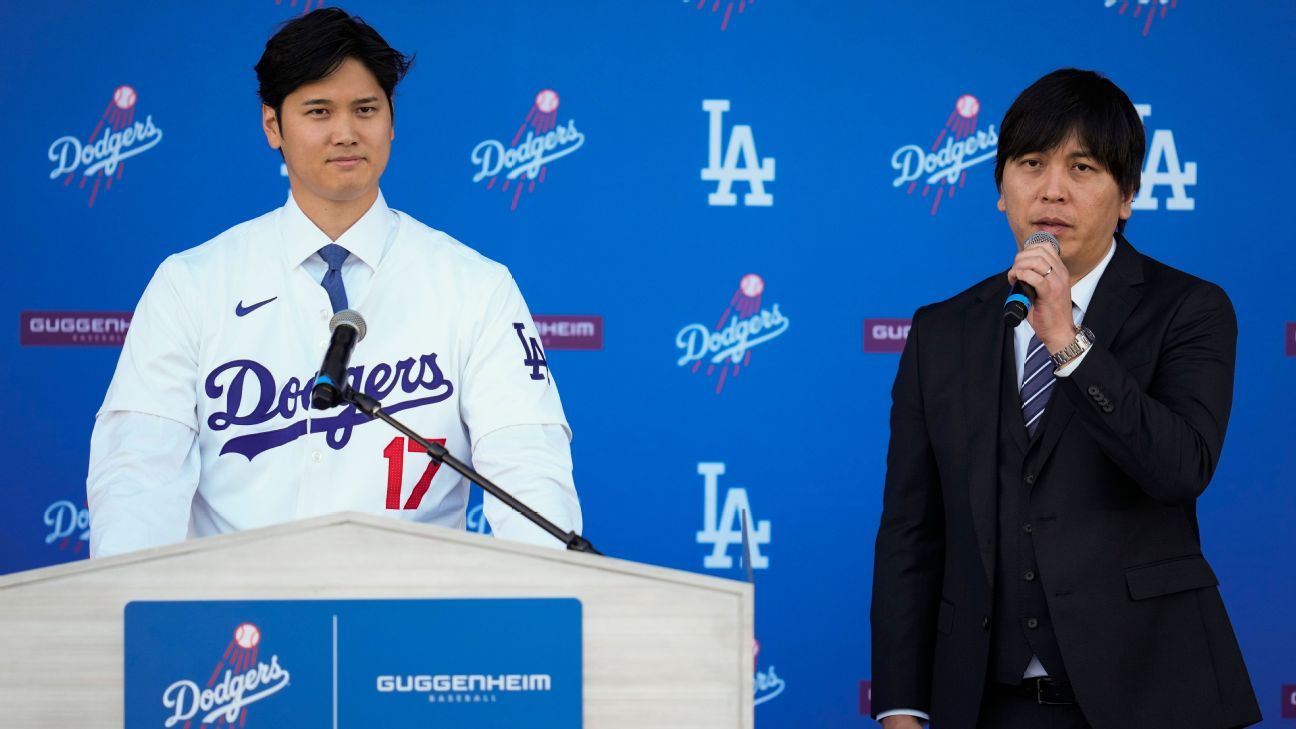The Calgary Flames and Florida Panthers swapped 100-point scorers in a blockbuster trade that was sealed late Friday.
The Flames traded forward Matthew Tkachuk and a conditional fourth-round draft pick to the Panthers for forward Jonathan Huberdeau, defenseman MacKenzie Weegar, Panthers prospect Cole Schwindt and Florida’s lottery-protected first-round selection in the 2025 NHL draft.
The move sent shockwaves through the entire league, as it’s a rarity for two stars to switch teams. How did both GMs do in the deal?
The Flames had a player who wasn’t going to sign with them beyond this season in Matthew Tkachuk. They traded him for two players who might not sign with them beyond this season in Jonathan Huberdeau and MacKenzie Weegar, who are both unrestricted free agents next summer.
Considering the reality of their surroundings, it might’ve been the only way general manager Brad Treliving could go.
This offseason, Calgary lost two foundational players in Tkachuk and left wing Johnny Gaudreau, the latter of whom left the Flames as an unrestricted free agent for the Columbus Blue Jackets. Another team sees its top two scorers “peace out” in the same summer, and it might make a sharp turn into rebuild mode. Treliving has no such luxury.
He’s got Jack Adams Award-winning coach Darryl Sutter behind the bench for at least one more season. He’s got a lineup with Andrew Mangiapane, Tyler Toffoli, Mikael Backlund, Elias Lindholm, Blake Coleman and Noah Hanifin. He’s paying Jacob Markstrom $8 million in salary next season — and $6 million against the cap with a full no-movement clause through 2025-26 — to help the Flames win the Pacific Division again.
The Flames are like a driver approaching a drawbridge who decides to put the pedal to the floor instead of waiting for a safer passage.
While he’s an elite passer, too, Huberdeau isn’t Gaudreau. The winger averaged 1.00 goals per 60 minutes and 2.95 points per 60, while Johnny Hockey was at 1.29 and 3.58, respectively, last season. Huberdeau’s a little closer to Tkachuk as far as scoring output (1.31 and 3.23), but Tkachuk had the superior season. But in a three-season snapshot, Huberdeau (1.00 goals per game, 2.68 points per game) had superior numbers to both Tkachuk (0.98, 2.46) and Gaudreau (0.96, 2.55).
Treliving has spoken about not being able to fill the void left by a player of Gaudreau’s caliber. To come as close as he did here by acquiring Huberdeau for Tkachuk is nothing less than extraordinary.
In Weegar, the Flames get a two-way defenseman whose media market and defensive partner (Aaron Ekblad) are the primary reasons why he isn’t considered one of the NHL’s elite. His reputation has been that of a defensive defenseman. Yet he has 80 points in 134 games over the past two seasons. Sutter must be salivating to get a blueliner like this next season, a player who can elevate any pairing he’s on.
Cole Schwindt is a 21-year-old forward whom the Panthers drafted No. 81 overall in 2019. He has spent the past two seasons in the AHL, including 40 points in 72 games with Charlotte in 2021-22. His 6-foot-2 frame makes him an interesting prospect, but his skating doesn’t inspire much confidence about an NHL impact.
Getting a first-rounder back in this package is the icing on the cake. It’s lottery-protected for 2025. This is the kind of long-range move that can sometimes come back to haunt the team doing the dealing. Or at least the Flames hope so.
Calgary is being graded on a contextual curve here. The Flames had a player they were all but forced to trade, who had some influence over their return based on where he was willing to sign long term. They had all the parts of a championship-caliber team without the engine after Gaudreau and Tkachuk were gone. This trade spackles over that hole on offense, and the Flames still have some money ($9.3 million against the cap) to add more scoring after re-signing Mangiapane and defenseman Oliver Kylington.
They also dramatically improved their defense corps. Hanifin, Rasmus Andersson, Chris Tanev and Weegar are a heck of a top four.
Huberdeau and Weeger could be short-term Flames. But that’s where Calgary’s focus is, and they have to be commended for staying all-in — while plucking a first-rounder down the line as well. If one or both sign beyond this season, all the better. Heck, if Weegar re-signs, bump this up to an A+.
If Calgary isn’t the same team without Tkachuk and Gaudreau, and they figure that out quickly … well, now they have two amazing players to move at the deadline before they hit free agency next summer.
The NHL offseason handed the Flames lemons. Instead of making lemonade, they tossed them over their shoulder and reached for freshly squeezed Florida orange juice. It might end up hitting the spot.
The Panthers led the NHL with 122 points in the standings last season before checking out in the second round of the playoffs, having watched the best offense the NHL had seen since 1995-96 sputter in the postseason. That was despite a huge swing at the trade deadline that brought Philadelphia Flyers star Claude Giroux to South Florida.
GM Bill Zito’s reaction to that season underscores his unique approach to this job. Another general manager is not trading away his team’s leading scorer and second-most important defenseman after a season like that. Another general manager is taking the myopic approach to the roster, even if there was a risk that Huberdeau and Weegar might leave via free agency in summer 2023.
Bill Zito is not that general manager.
The acquisition of Matthew Tkachuk might not make the Panthers a better team next season. I think they take a step back from that 122-point campaign. But it positions them to be a potentially great team well beyond next season.
Zito called Tkachuk “a tenacious, physical competitor who possesses a tremendously unique skill set.” He speaks the truth. Tkachuk is a physical playmaking winger who creates offense as effectively as he agitates opponents. His defense can be Selke Trophy-caliber, which is a glaring point of demarcation between himself and Huberdeau. The Panthers clearly feel that, stylistically, Tkachuk is what they need to break through in the playoffs: His physicality, tenacity, defense and the way he goes to the net.
Here’s another: Huberdeau will be 30 years old when he signs his next big contact next summer. Tkachuk turns 25 this December. The Panthers are going to pay Tkachuk $9.5 million against the salary cap through 2029-30. Huberdeau would have cost just as much. The Panthers essentially bought themselves a few years on the aging curve for a more complete player.
There has been a lot of debate about what Tkachuk’s ceiling is in the NHL. Was that 43-goal season anomalous? The product of playing with Gaudreau in a season in which goal scoring in the league unexpectedly spiked to its highest goals-per-game average since 1993-94? It’s a legitimate question and concern.
But if Tkachuk gives the Panthers what he gave the Flames in 2018-19 — 34 goals, 43 assists in 80 games — while offering all his intangibles, they’re probably pretty happy. Vegas winger Mark Stone gets praised to the moon for a season like that while making $9.5 million against the cap. And he’s 30 years old.
I get the sense that Huberdeau wanted to remain with the Panthers. I get the sense the Panthers like him too. You never say never in the NHL when it comes to reunions, especially when Florida will have some cap flexibility next season. But to land Tkachuk, Huberdeau had to go. Who knows if that ends up burning a bridge.
Speaking of cap flexibility, the Panthers had to make the money work on this trade. Weegar’s name was always in consideration if Florida was going after Tkachuk. The combination of him and Huberdeau added up to $9.15 million in cap space — or $350,000 less than Tkachuk’s cap hit next season.
They’re going to miss Weegar. He did everything for them on both ends of the ice, and he was essential to what Florida did offensively in its transition game. He was an essential partner to Ekblad, a task that might now fall to Gustav Forsling.
Again, this was Zito getting ahead of the curve. The Panthers were shopping Weegar previously this offseason. For whatever reason, he didn’t fit into their plans. While it might set them back this season, it was essential to securing Tkachuk.
Schwindt is an AHL player with some potential, but trading him away is a reasonable risk. We’re not crazy about the inclusion of the 2025 first-round pick because it means the Panthers will not have had a first-round pick in four straight seasons, having given them up for Sam Reinhart (2022), Ben Chiarot (2023), Giroux (2024) and now Tkachuk (2025). Two of those players were one-and-done for a team that sputtered out in the second round. That’s a little disconcerting when finding low-cost, young players to fill in the lineup around players like Tkachuk and Aleksander Barkov would seem indispensable.
There’s some risk here. The best rewards always carry some. The Panthers’ decision to become Matthew Tkachuk’s team could end up being a shrewd reset at a time when, logically, they might have doubled down on what was already there.
Complacency gave the Panthers six postseason appearances and no series wins in 24 years. Boldness gave them the President’s Trophy and their first appearance in the second round since 1996. Lesson learned.





